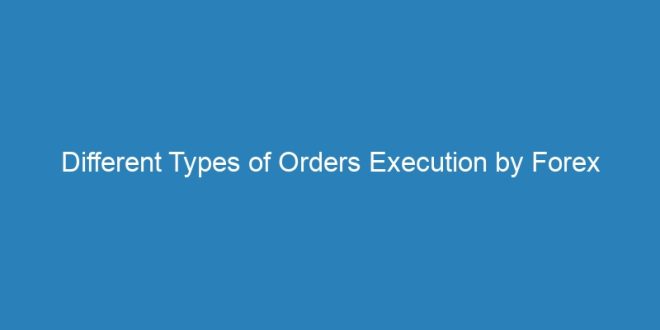When it comes to types of forex brokers, most of the resources you can find on the internet will categorize them according to the following terms: dealing desk, market maker, no-dealing desk, live processing, electronic communication network, direct market access, introduction , and you may be able to find other terms to describe the basic types of brokers. The question now arises as to how one can classify all these terms in a meaningful way.
The first thing you need to understand is who is running the market for you and who you are dealing with. Regarding this question, there are two different types of FX brokers: the so-called Dealing Desk (DD) brokers and the No-Dealing Desk (NDD) brokers. The DD broker is your market, which means that the broker itself is the partner of your trade or, in other words, the broker is trading against you. Since DD brokers represent the market, they are also called market makers (MM). You benefit from both the spread and the trades. They prefer loose traders, failed traders, because they make brokers profitable. On the other hand, successful traders force brokers to hedge themselves in the interbank market, which incurs additional fees that they are not among the most sought-after customers. Of course, the leading FX trading providers manage this professionally, while some of the more “exotic” brokers may ask you to close your account and leave if you’re too successful.
In contrast to DD brokers, NDD brokers direct your orders to the “real” market. When it comes to forex, the real market is a group of banks, funds, and another type of liquidity provider (LP) – institutional intermediaries. The more LPs there are in the group, the better the established trading conditions – higher liquidity, lower costs in terms of spreads. There are basically two types of NDD brokers: STP and ECN. STP stands for Straight Through Processing, while ECN stands for Electronic Communications Network.
Let’s start with ECN first. It is a collection of LPs and once a forex broker joins the network they become connected to the market and can enjoy the liquidity and other benefits of the entire network without knowing other members and signing agreements with them. There is a certain fee to become and remain a member of the network. When a customer sends an order to an ECN broker, the latter forwards it to the market and is executed by the LP that offers the best conditions / prices. The opponent of such a trade can be anyone in the network. Due to the large number of members, customers can also enjoy market depth (level 2) on their trading platform. New trading, scalping and other specialized techniques are no problem with ECN brokers.
An STP broker is similar to an ECN, but instead of joining an existing pool of LPs, the broker must sign an agreement with each LP separately. The more LPs have signed contracts, the better for their customers. What is remarkable is the fact that not all STP brokers are created equal. They differ in who is the counterparty to the trades you are making. Some STP brokers offer direct market access (DMA). In this case, your order will be automatically forwarded to the market and any LP can become a counterparty – which has the best conditions. On the other hand, some STP brokers will trade against you (they will fulfill your order) and then hedge themselves in the actual record market to eliminate the risk.
So far, we’ve cleared most of the terms related to Forex broker execution types. What we didn’t cover is the Introducing Broker (IB). This is nothing more than an extension of the existing broker trying to get more business. You can find IBs for DD and NDD brokers.
While some brokers clearly define themselves as one type of broker and base their marketing strategy on their profits, it is sometimes difficult to pinpoint the exact type of order execution that other forex brokers offer. Well, there are certain facts you can uncover about the type of broker, for example: ECN and DMA brokers always give variable spreads that are never fixed; ECN brokers charge trading commissions while others make money mainly by widening spreads; Level 2 courses are only available from DMA and ECN brokers; etc. Many brokers also work on a hybrid model, for example offering DD execution on micro and mini accounts, while offering NDD solutions on standard accounts.
While DD brokers apply to be fee-free brokers, they are actually paying larger spreads than fees and not needing the cheapest solution for you. ECN brokers, on the other hand, charge a commission on every trade, but offer make raw spreads with no premium. Heavier traders with higher volumes should consider trading with an ECN broker, while most retail clients will get along well with a DD broker. Of course, there are other things to consider before choosing a broker. I recommend that you read some forex broker reviews, find forex brokers, and compare forex brokers before choosing one.
Goran Dolenc has over 10 years of experience as a trader and investor, mainly trading stocks, ETFs and Forex. He is also the editor of the Largest Forex Brokers List and Forex Broker Comparison Module [http://www.brokerswiki.com/] where you can start your journey to explore forex brokers.
 KRETENG.COM Website Review Bisnis, Tempat dan Harga Produk Terbaik di Indonesia
KRETENG.COM Website Review Bisnis, Tempat dan Harga Produk Terbaik di Indonesia

